With many parks operating for up to 11 months, you might be planning on using your static caravan or lodge throughout the winter. Some parks are even open over the Christmas and New Year period so you can celebrate in your home away from home.
Here we give five tips on how to make your winter stay in your static or lodge more comfortable and risk-free.
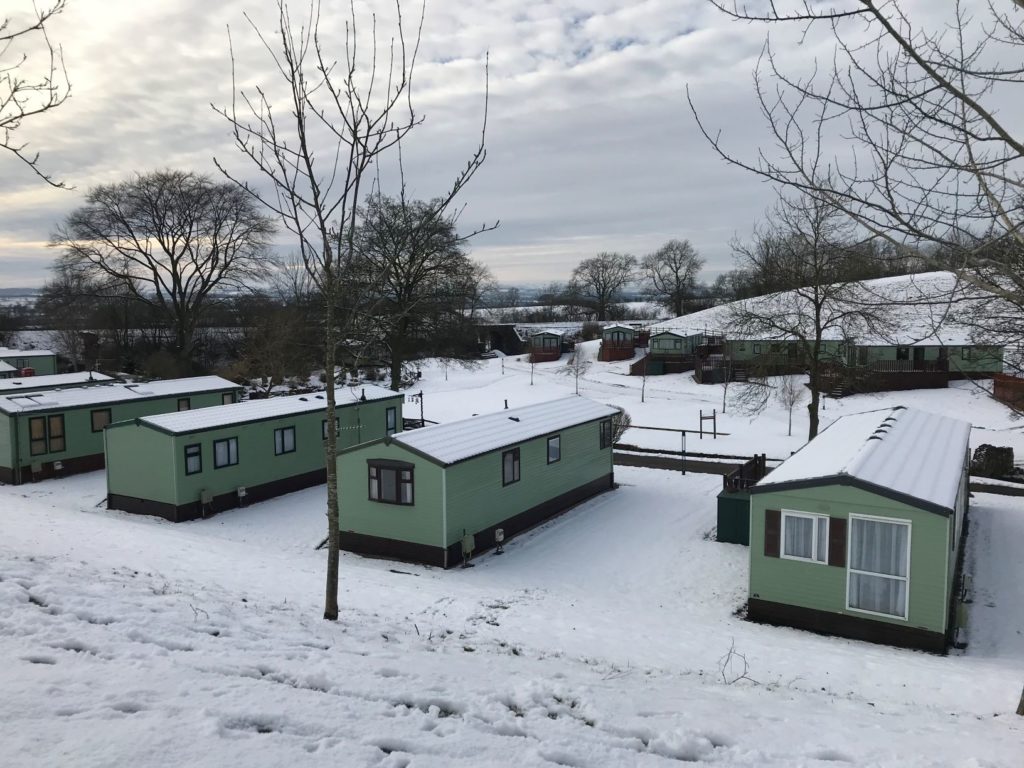
1. Is your caravan built for winter use?
Check the build standard of your caravan to make sure it’s suitable for winter use. Most static caravans are built to EN1647 standard which means they’re only designed to be used as temporary or seasonal accommodation, not for permanent all-year round use.
Any caravans or lodges built to BS3632 residential standard have extra insulation in the walls, flooring and roof, as well as double glazing, and are designed for regular all-year-round use.
2. How do I make my static caravan warmer in winter?
If your caravan isn’t particularly warm in winter you could consider extra heating appliances for your caravans, such as plug-in oil-filled radiators or fan heaters. Other quick, cheap and simple solutions include buying draft excluders for the doors; thicker, lined, curtains in all rooms; and having extra rugs or carpets on all the floors, as well as some extra blankets, and hot water bottles for colder nights.
Most new caravans and lodges will have double glazing and central heating as standard, however, if you have an older unit you can retrofit these options.
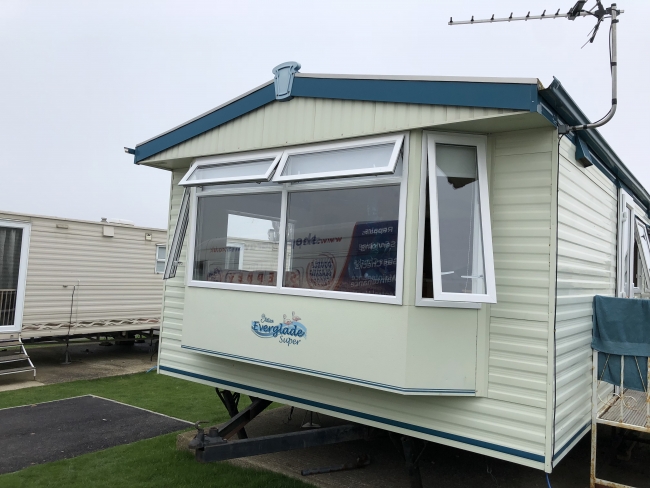
Sheppey Caravans estimate the cost of installing a basic central heating system to a static caravan, including a 24kw LPG condensing combi boiler, up to eight radiators, a towel rail and lagged pipework, would be under £3000 – but this would vary dependent on park location and layout of the caravan. They also quote a typical price for 10 double glazed windows and two doors for a static caravan at just over £2000 fitted.
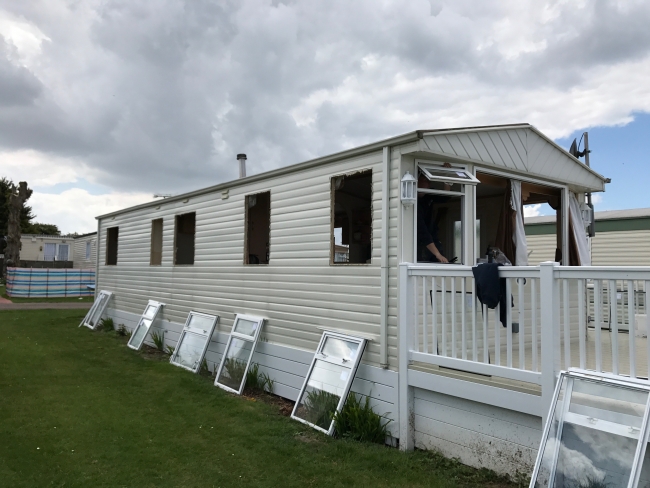
Underfloor insulation reduces cold air penetrating the floor and reflects heat back into the caravan, helping to keep the warmth inside your caravan for longer. Many new static caravans will likely have some underfloor installation but older units may need underfloor insulation replacing or upgrading.
Specialist Caravan Underfloor Insulation company uses a four-layer thick double foil, double bubble, and thermal insulation. The aluminium foil to the outer sides, is corrosion resistant and waterproof and also reflects heat lost through the floor back into the caravan and prevents cold air penetrating the floor, by reflecting cold air away.
Got a static caravan with the more traditional aluminium finish? Adding vinyl cladding with insulation will help your static caravan stay warmer for longer in winter.
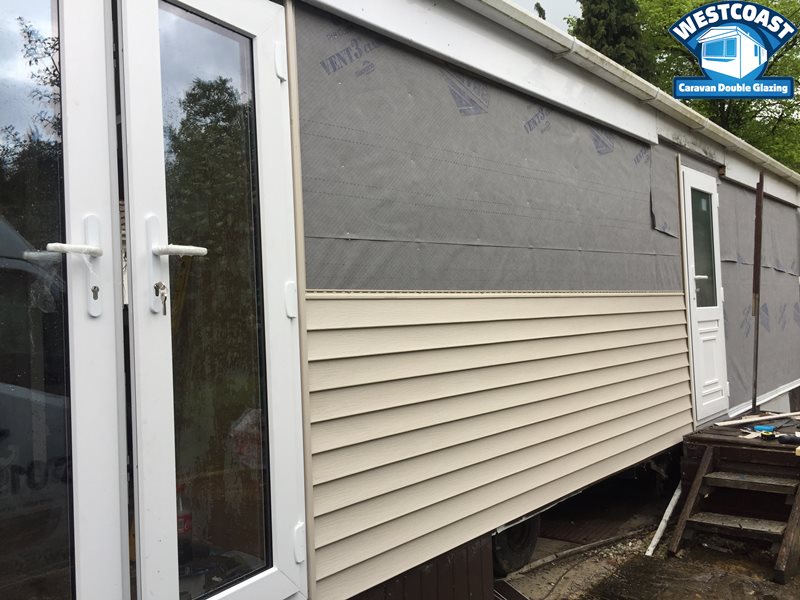
Dale Fitzgerald of West Coast Caravan Double Glazing says: “Installing new external vinyl cladding to static caravans is a cost-effective upgrade. It looks modern and if fitted with insulation the caravan will be extremely thermal efficient.” He told us that an average cost of installing cladding with extra wall insulation to a 35ft x 12t static caravan would be around £4,900 including VAT.
If your caravan is within warranty it’s always worth a check with your manufacturer that any modifications don’t invalidate the terms. And we’d always advise speaking to your park before making any major modifications to your holiday caravan as they might have approved suppliers. Also, check your site agreement to see if your park has an enforced maximum caravan age limit – costly upgrades might not give you value for money if you’re going to have to change your unit in a few years’ time.
Also, lag any exposed pipework underneath, or on the side of your caravan, to prevent them from freezing and possibly bursting.
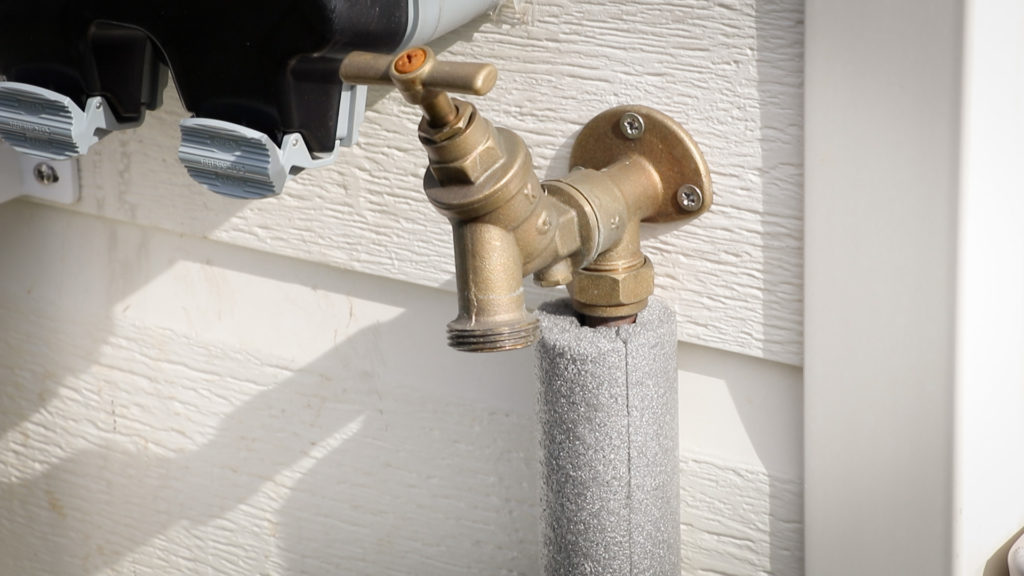
Please do remember to add the value of any fixed modifications such as skirting, double glazing or cladding to your insurance value for your caravan structure and of course for extra equipment such as plug in appliances to your caravan contents sum insured – this makes sure these extras are covered in the event of a claim.
3. Make sure you have plenty of gas
If your static caravan or lodge is not connected to a mains supply of gas, you’ll be reliant on gas bottles.
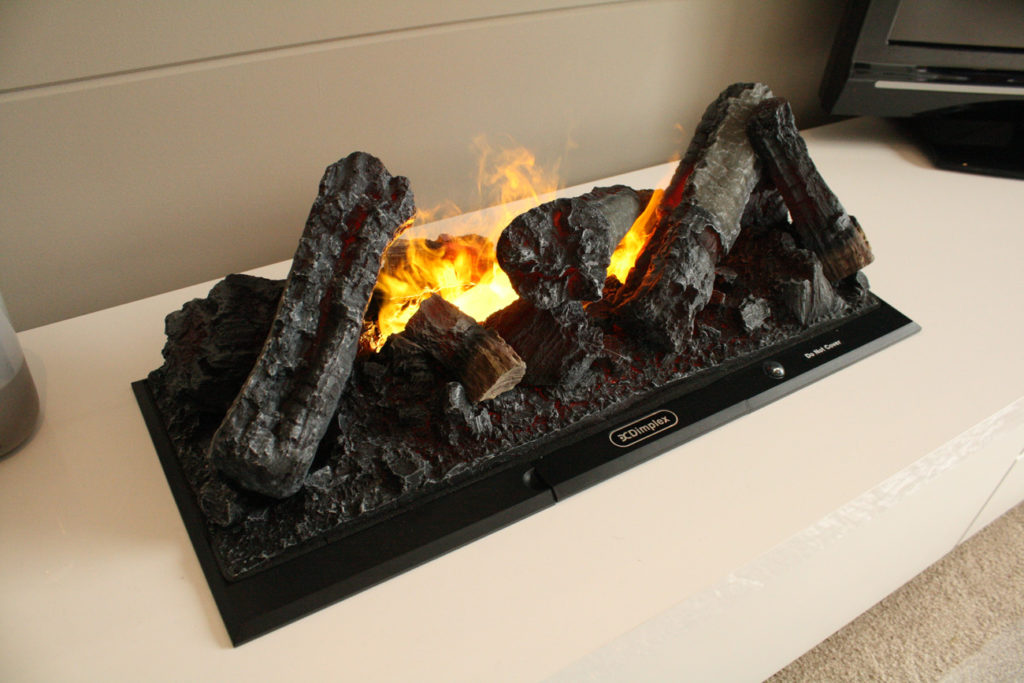
If you’re going to be using your static caravan more this winter then be prepared to be using more gas to fuel your heating and cooking systems, preparing for some cosy nights in around a heartwarming meal! Or maybe you’re planning on cooking a Christmas dinner? Either way, you’re going to be using more gas than in the summer and autumn months, so make sure you have enough gas. Many owners have two bottles with a dual gas regulator that auto switches as soon as one bottle runs out. In any case, it’s always worth having a full bottle in reserve over winter.
4. Be prepared
Be prepared by stocking up with plenty of food supplies and taking some extra layers of clothing, as well as winter boots and coats for everyone. We love the saying -“there’s no such thing as bad weather, only unsuitable clothing.” from A Coast to Coast Walk.
Extra blankets for snuggling up on the sofa or for the bedroom are a good idea, or even an electric blanket and hot water bottles will warm up the bed before you turn in for the night.
5. Draining down when you leave
The most common static caravan insurance claims in the winter months are for damage caused by the escape of water from frozen pipes, as well as weather-related claims such as flooding and storm damage.
It’s a condition of a Leisuredays’ static caravan insurance policy to drain down between November 1st and March 15th, every time you leave your holiday caravan unoccupied overnight or if your park is closed. Draining down your static caravan helps to protect your caravan from damage and to make sure you’re covered for damage caused by freezing water or escape of water in the event of an insurance claim. Water left in pipes can freeze, causing the pipes to split.
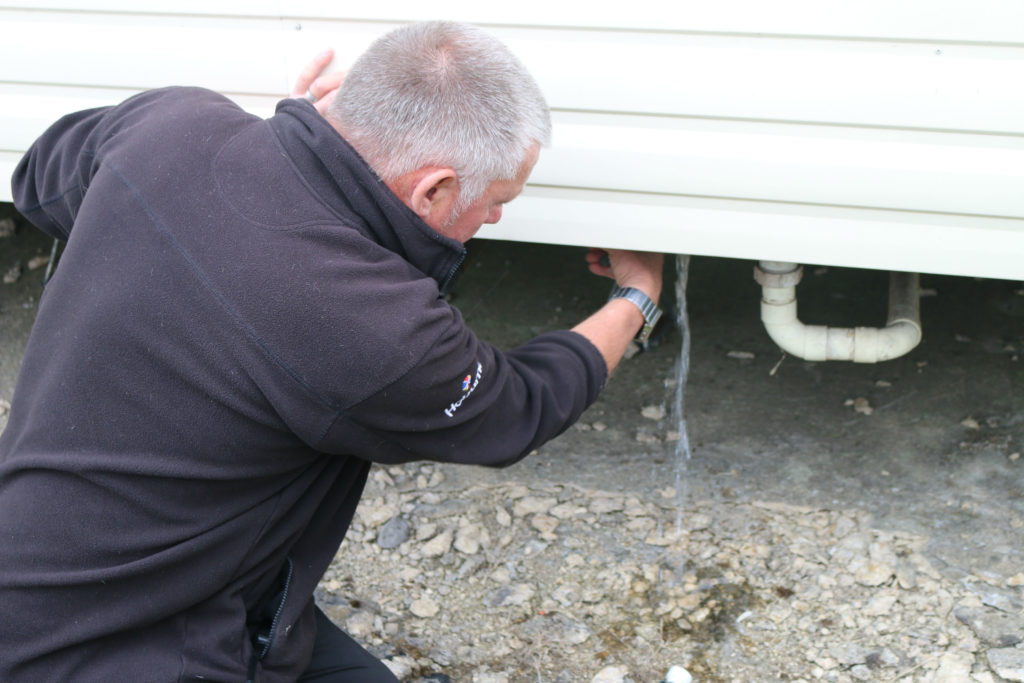
If your park is going to be open at any time between November 1st and March 15th and you’re going to continue to use your static caravan or holiday lodge, then every time you leave it unoccupied overnight you must drain it down by:
- Turning off the water at the stopcock
- Opening ALL the taps, including any showers, and leaving them open
- Flushing all toilets to empty the cistern
If you don’t plan on staying in your caravan over winter, or if your park is closed, then it must be fully drained down to protect it from damage when you’re leaving it unoccupied between November 1st and March 15th.
If you hire out your holiday caravan over winter and have our “hiring out” cover (Endorsement 4) on your policy schedule, please refer to the winter weather precautions we require you to take between hire bookings in your policy booklet.
Many parks will offer a professional full drain-down service or you can follow our simple tips in the following video.
The main thing if staying in your static caravan or lodge this winter, is to stay safe, have fun and enjoy the wonderful outdoors.
Over to you…
If you’ve got any winter caravanning tips then please feel free to share in the comments box below.





You forgot an electric blanket there are some that you can leave on all night plus bed socks
thanks alot of information goodjobs